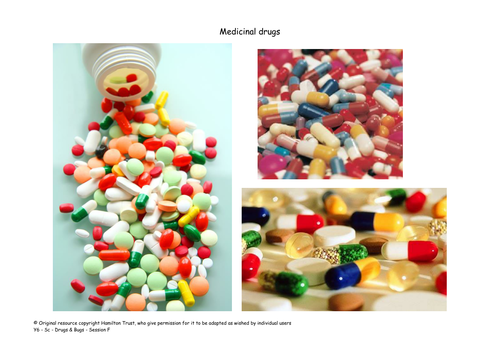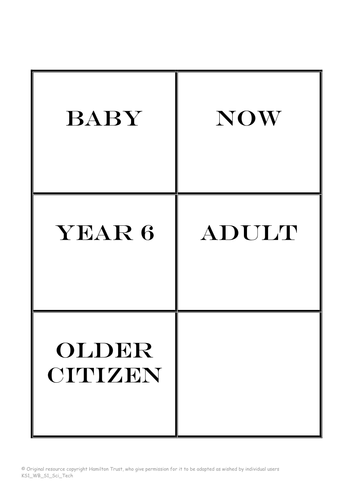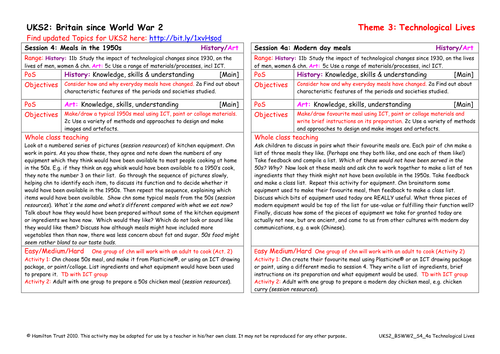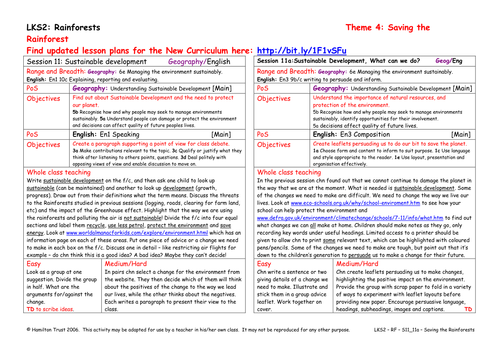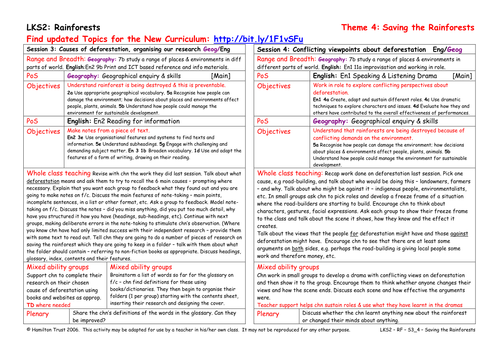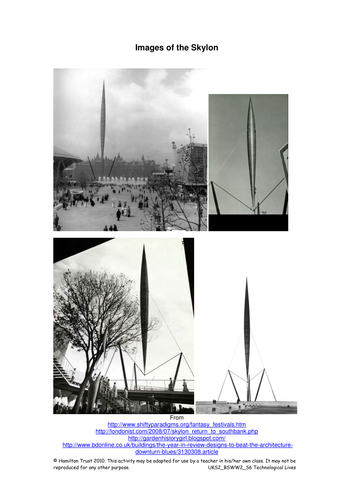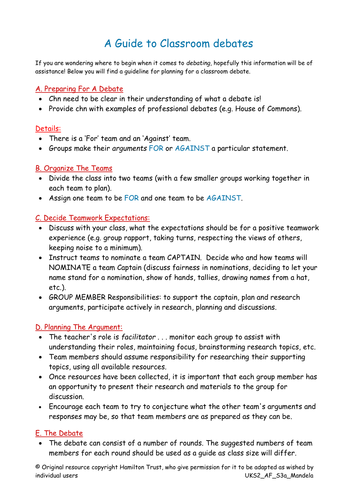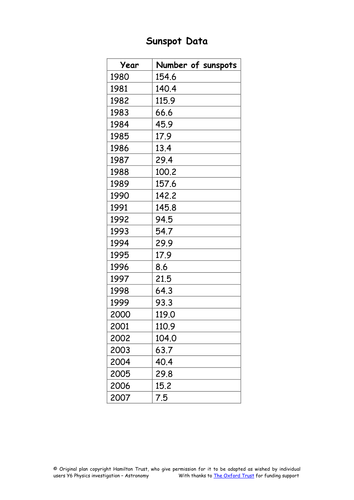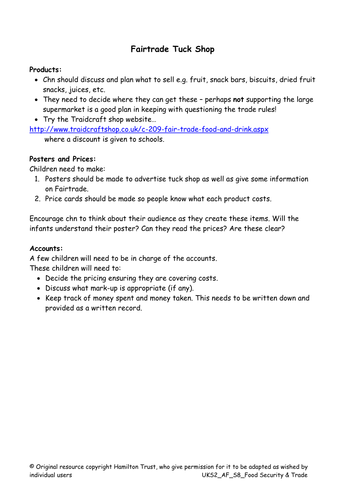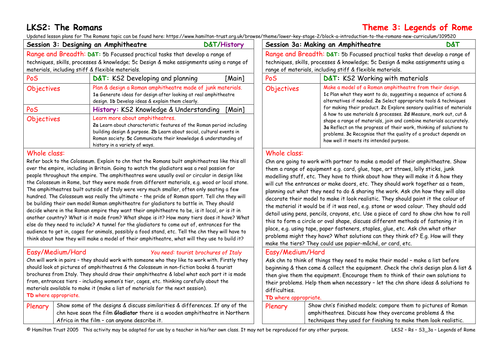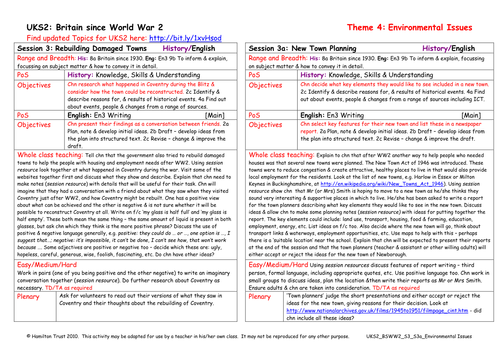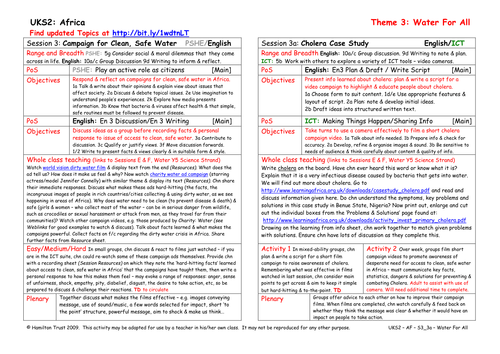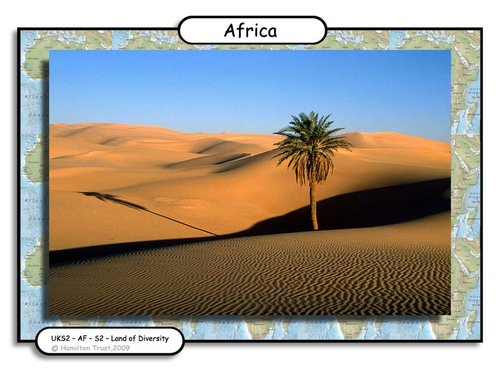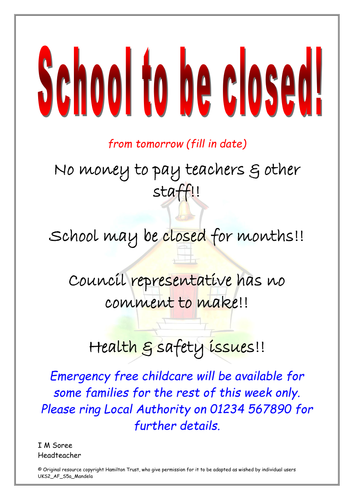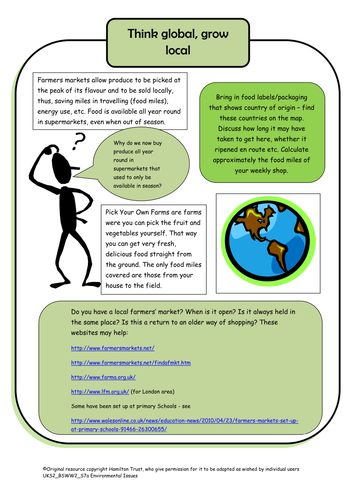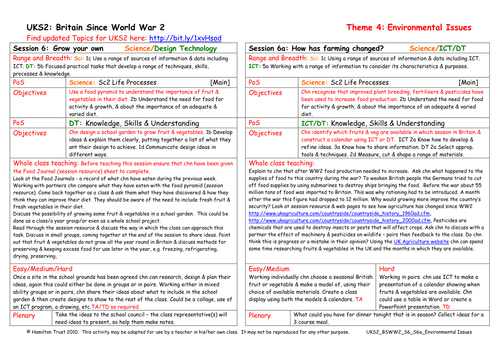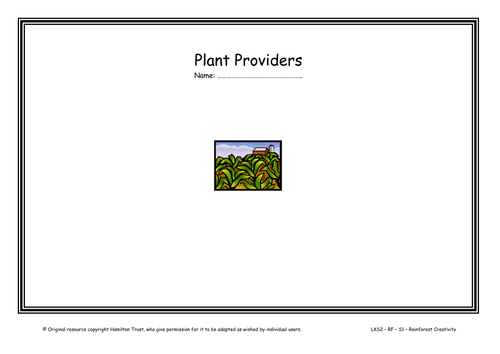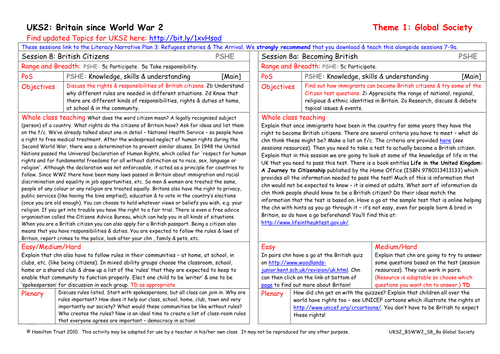
397Uploads
10041k+Views
11644k+Downloads
All resources

Other drugs
Discuss the use of the word drug for medicinal purposes as well as addictive substances. Children draw posters warning about the dangers of drugs in the home and draw conclusions about the various ongoing investigations about micro-organisms.
Suitable for Y6 pupils.

Journey of Life
How have we changed since we were babies? How will we change as we grow up? Children explore these questions by thinking about the different stages of life and recording their thoughts in zig-zag books.

Meals In The 1950's
Children look at pieces of kitchen equipment and guess which were available in the 1950s. One group make a real chicken meal, whilst the others make a typical 50s dinner from Plasticine, an ICT package or paint/collage materials. All taste the 50s dinner.

Sustainable development - What can we do?
All talk no action...! Not in this session. Children use the internet to find out what else we can do before creating leaflets to persuade other children and adults to make the change!

Causes of deforestation, organising our research
In this session children find out how to create key word notes and organise their information in folders with contents pages. Children continue to use non fiction book features and the internet to locate information effectively.

Not In My Back Yard
Discuss a proposed plan for creating wind energy. They are given time to research and prepare for a debate ‘Should 7,000 wind turbines be placed in and around the UK?’ In teams they will put forward their views backed up with evidence to support their case.

Festival Of Britain Architecture
Children look at Festival of Britain architecture especially the Skylon and Dome of Discovery. They choose to make a Skylon, Dome or to design their own futuristic piece of architecture.

Why Vote?
Discuss facts about voting in the UK: not everyone exercises their right to vote. Engage children on the right to vote and its significance in their own country. In two teams for and against, debate the issue of lowering the voting age.
Suitable for years 5 and 6.

The sun
Show children that white light is actually a mixture of colours and that the Sun provides heat! Investigate sunspots using shadows and the rotation of the earth around its axis. Finally draw a graph of the number of sunspots a year and identify a pattern.
Suitable for Y6 pupils.

Fair Trade Tuck Shop
Children consider arguments for and against fairtrade. They plan to set up a fairtrade tuck shop to raise awareness.
Design and make posters to advertise the tuck shop and explain some of the issues surrounding fairtrade. Some children organise the stock and accounts.

Designing an Amphitheatre
Children continue the work on gladiators and Roman entertainment and look at amphitheatres. They study what they look like and realise that these varied from place to place. They begin to plan and design their own model amphitheatre.
Suitable for years 3 and 4.

New Town Planning
Find out about the New Towns that were planned to help with housing shortages. Look at some examples. Children identify the key elements that they would like included in a new town, and then write a report for a new town planning committee.

Cholera Case Study
Through following a case study in Benue State, Nigeria, children learn about cholera. They plan and write a script for a video campaign to highlight and educate people about cholera, finally taking turns to use a camera to film their short cholera campaign videos.
Suitable for years 5 and 6.

Mountains to Seas
Using an exciting presentation, children look at a variety of images from across Africa, the largest landmass on the planet. They begin a research project to find out more about a particular type of landscape, possibly linking this to their chosen country.
Suitable for years 5 and 6.

The Right to Education
Through role play children consider for themselves the impact of no access to school.
They plan a poster campaign or write a persuasive letter to reopen their school. Links to Children’s Rights to Education.
Suitable for years 5 and 6.

Think Global, Grow Local
Discuss Farmers Markets and Pick Your Own food taking into consideration food miles, energy use, carbon footprint and produce. Calculate food miles involved in weekly shop (using labels and packaging from supermarkets). Children write an acrostic.

Grow Your Own
Children compare a food journal they have kept with a food pyramid which gives the recommended servings of different food groups. The need to include fruit and vegetables is highlighted and children design a garden to grow their own.

Household Gadgets
Children discuss labour-saving gadgets and chores which are still time-consuming or unpleasant. They then work in groups to design their own gadget and present it to the rest of the class as in the Dragon’s Den.

Plants with a Purpose
What have plants ever done for us? In this session children find out that plants are more useful than we might imagine.
After discussing all of the benefits and recording them, children start to consider how what plants give us can be used in more creative ways.

British Citizen
Find out what the rights and responsibilities of a British citizen are. Discuss why rules or laws have to be passed for communities to function properly. Children work in groups to list the ‘rules’ needed in their communities, e.g. home, town, school, clubs.

